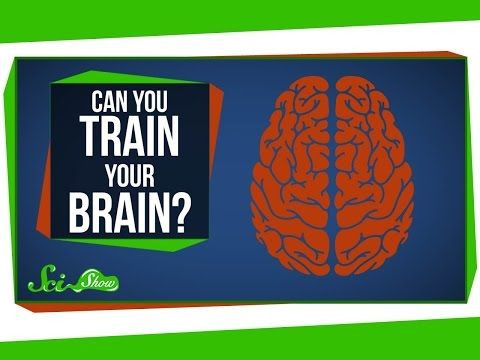Can You 'Train' Your Brain? Cognitive Training Claims To Improve Brain Function, Prevent Onset Of Dementia

Society is obsessed with ways to stay young, both physically and mentally. We exercise our muscles to keep our bodies fit, strong, and healthy, but can we exercise the brain this same way?
In SciShow’s latest video, “Can You Really 'Train' Your Brain?,” host Michael Aranda explains “brain training” games — games that claim to improve memory, attention, reasoning skills, and even the onset of diseases like dementia — actually don’t improve our overall brain health. The basis of brain training relies on the concept of neuroplasticity, the idea that connections between neurons in the brain are plastic and changeable, and can adapt to new things. Studies on dementia and the aging brain show that losing this plasticity may lead to cognitive decline, so brain training programs claim to stop, or even reverse this by “flexing” the brain like a muscle.
We know the more we practice a task, the better we get at it, but can playing these brain games actually make us better at doing other real-life things, like remembering names and appointments?
In 2010 study published in the journal Nature, researchers had over 11,000 people practice tasks meant to improve their reasoning, memory, and attention, but after six weeks, they'd only gotten better at the game themselves. In other words, their new skills didn't transfer over to other tasks, not even similar ones.
The scientific community has come to the general consensus that brain training doesn't have a significant impact on cognition. In 2014, 70 neuroscientists and cognitive psychologists signed a statement saying, "We object to the claim that brain games offer consumers a scientifically grounded avenue to reduce or reverse cognitive decline when there is no compelling scientific evidence to date that they do.”
So, does that mean brain training doesn't work at all?
Not exactly. Brain training programs won't actively harm us, but the way they are advertised is flawed. They do not improve our overall brain health, but they can be helpful in some specific cases. For example, a recent study found one rehab program that included skills training, practicing things like remembering names, and counting change helped patients with Alzheimer’s disease get better at those things.
A healthy diet and exercise can suffice to keep the aging brain healthy. Science is still trying to understand the effect of aging on the brain and what causes dementia. Until then, brain training is all but just a mind game.



























